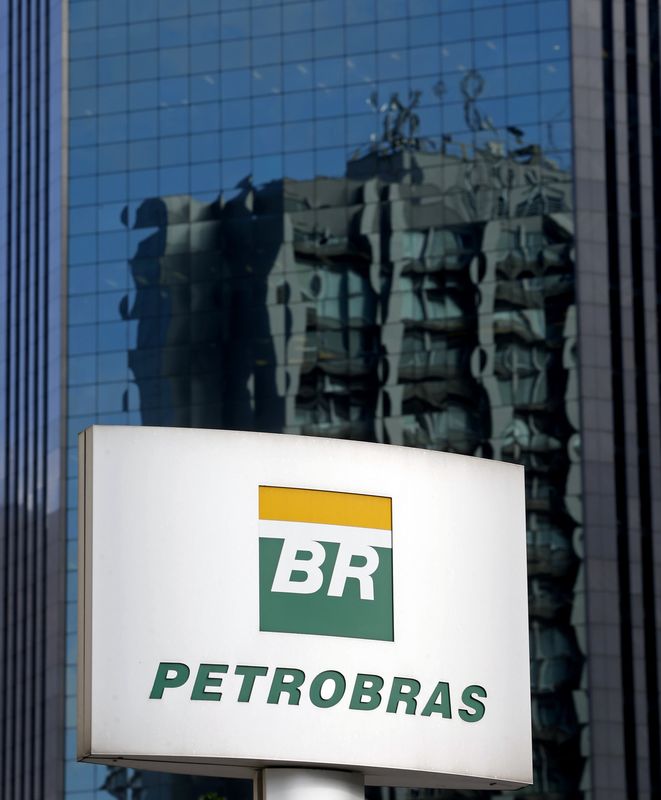By Jeferson Ribeiro and Luciana Otoni
BRASILIA (Reuters) - Brazil's President Dilma Rousseff tapped a confidant from a state-run bank to be the next head of Petrobras on Friday, chilling investor hopes that a more independent new management team would steer the oil firm out of a huge corruption scandal.
The company's shares slid more than 8 percent after news leaked that Aldemir Bendine, previously CEO of Banco do Brasil, would be Petrobras' next chief executive. Petrobras' board confirmed him in the job later on Friday.
Bendine oversaw a period of high profits at Banco do Brasil, where he furthered the government's leftist economic agenda but also pleased private-sector shareholders, driving up the bank's stock price by about 90 percent under his leadership.
Yet some investors voiced concerns Bendine's public-sector background and closeness to Rousseff make him less likely to reverse Petrobras' fading fortunes. Many investors blame the president's interventionist policies for the company's problems as well as a years-long slowdown in Brazil's economy.
Bendine's appointment would mean the company will "remain largely bound to the government's needs," Bradesco BBI analysts led by Auro Rozenbaum wrote in a client note. "We see no major managerial improvement compared to the previous administration."
Shares in Petroleo Brasileiro SA, as the company is formally known, have tumbled about 60 percent since September as prosecutors alleged that billions of dollars in price-fixing and bribery plagued the company in recent years.
A symbol of Brazil's long economic boom last decade, Petrobras now typifies its fall from grace at a moment when the country is also facing possible water and energy rationing, high inflation and its second recession in as many years.
Rousseff also saddled Petrobras with heavy spending that has failed to meet ambitious production-growth targets, turning Petrobras into the world's most-indebted and least-profitable major oil company
The board named Ivan de Souza Monteiro, also from Banco do Brasil, as its chief financial officer. Current Petrobras employees were promoted to four other senior spots on an interim basis.
The appointments come after former CEO Maria das Graças Foster abruptly resigned on Wednesday along with five key lieutenants. Bendine was not among the likely candidates identified by analysts and local media.
NOT A PLACEHOLDER
Joao Augusto Castro Neves, an analyst at Eurasia Group political consultancy, said Bendine was "an improvement" over previous management because he will have a mandate to make changes.
However, Castro Neves acknowledged there would be "a lot of questions on his views because he does not have solid market credentials and also he is not from the oil industry."
In recent years Petrobras had been forced to import gasoline at global market prices while selling it at a loss on the local market in order to help tamp down inflation.
The government, Petrobras' principal shareholder, will push to maintain more than $200 billion of investment over five years to bolster a sluggish economy.
Speculation about a shakeup at the company had been rampant since November when more than three-dozen people, including former Petrobras executives, were caught in the scandal.
The new leadership team's first job will be to tally corruption-related losses and publish audited fourth-quarter results by the end of April as required by Brazilian law and bond contracts with international investors.
Meanwhile, Banco do Brasil SA will name Alexandre Abreu, current head of retail banking, as its new chief executive on Friday, a source with knowledge of the situation told Reuters.
Banco do Brasil declined comment through its press office

Petrobras said Solange da Silva Guedes will head its exploration and production division, Jorge Celstino will lead refining and supply, Hugo Respold will manage natural gas and energy and Roberto Moro will handle the engineering and technology department.